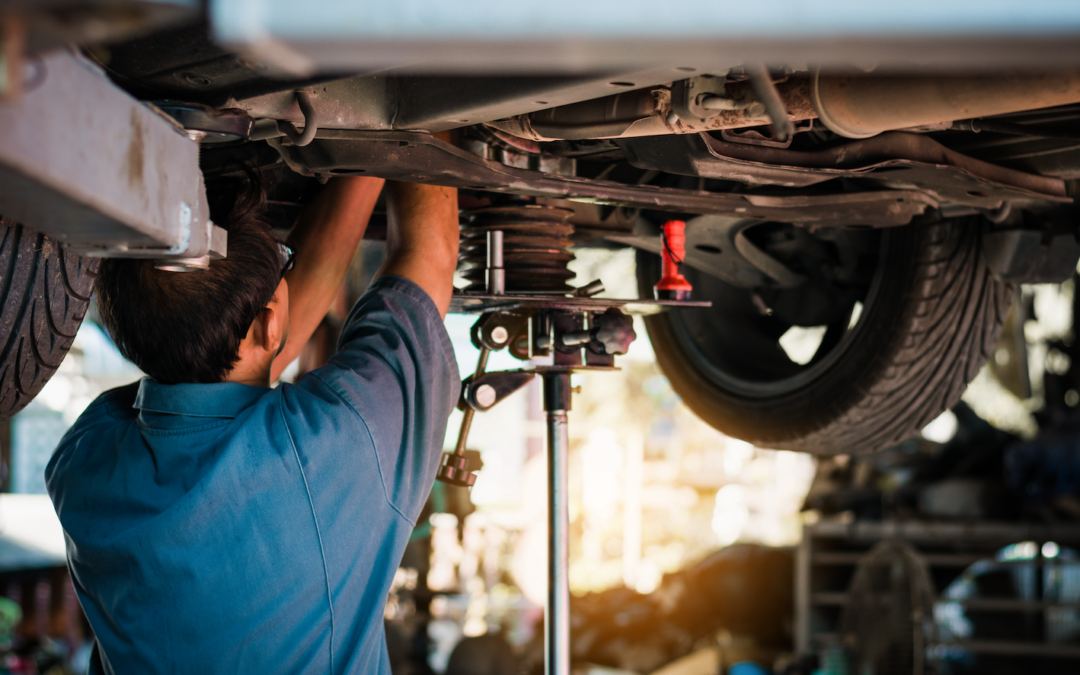As a vehicle owner, you might have experienced strange noises coming from your vehicle’s suspension system. These noises can be concerning and may indicate underlying issues that need attention. In this month’s blog post, we explore common suspension noises, what they might mean, and how to address them.
Unusual Suspension System Sounds
- Clunking or Knocking Sounds: These sounds are often heard when driving over bumps or potholes.
- Squeaking or Creaking Noises: These noises are usually heard when turning the steering wheel or going over uneven surfaces.
- Rattling Sounds: Rattling noises can be heard when driving on rough roads.
- Hissing or Air Leaking Sounds: These sounds are often associated with air suspension systems.
Common Suspension System Problems
Suspension noises can be caused by various issues and identifying the root cause is essential for proper repair. Here are some common problems:
- Worn-Out Components:
- Over time, suspension components such as ball joints, bushings, and control arms can wear out, leading to clunking or squeaking noises. Worn out parts should be replaced.
- Loose or Damaged Parts:
- Components like struts, shocks, and sway bars can become loose or damaged, causing rattling sounds. Make sure that parts are tightened by a professional.
- Lack of Lubrication:
- Suspension parts need proper lubrication to function smoothly. Lack of lubrication can lead to squeaking or creaking noises.
- Air Suspension Issues:
- Vehicles with air suspension systems may experience hissing sounds due to leaking air springs or damaged air lines.
Suspension System Maintenance
Maintaining your vehicle’s suspension system is crucial for ensuring a smooth and safe ride. Here are some tips to help you keep your suspension system in top condition:
- Inspect Regularly:
- Periodically check your suspension components for signs of wear and tear, such as cracks, leaks, or loose parts. Pay special attention to shocks, struts, and bushings.
- Keep It Clean:
- Dirt and debris can accumulate on suspension parts, leading to premature wear. Regularly clean the undercarriage of your vehicle to remove any buildup.
- Lubricate Moving Parts:
- Ensure that all moving parts, such as ball joints and bushings, are properly lubricated. This helps reduce friction and prevent squeaking or creaking noises.
- Check Tire Alignment and Balance:
- Misaligned or unbalanced tires can put extra stress on your suspension system. Regularly check and adjust your tire alignment and balance to ensure even wear and smooth handling.
- Monitor Tire Pressure:
- Proper tire pressure is essential for maintaining suspension performance. Check your tire pressure regularly and keep it within the recommended range.
- Avoid Overloading:
- Overloading your vehicle can strain the suspension system. Be mindful of your vehicle’s weight limits and avoid carrying excessive loads.
- Focus on Driving Habits:
- Avoid driving over potholes, speed bumps, and rough terrain at high speeds. This can help prevent damage to your suspension components.
- Replace Worn-Out Parts Promptly:
- If you notice any signs of wear or damage, such as clunking or squeaking noises, have the affected parts inspected and replaced by a professional mechanic as soon as possible.
- Regular Professional Inspections:
- Schedule regular inspections with a professional mechanic to ensure that your suspension system is in good condition. They can identify and address any issues before they become major problems.
Regular inspections and timely repairs are key to keeping your vehicle’s suspension in optimal condition. If you are concerned about your suspension, contact the service professionals at Campus Repair to schedule an inspection and/or repairs.

